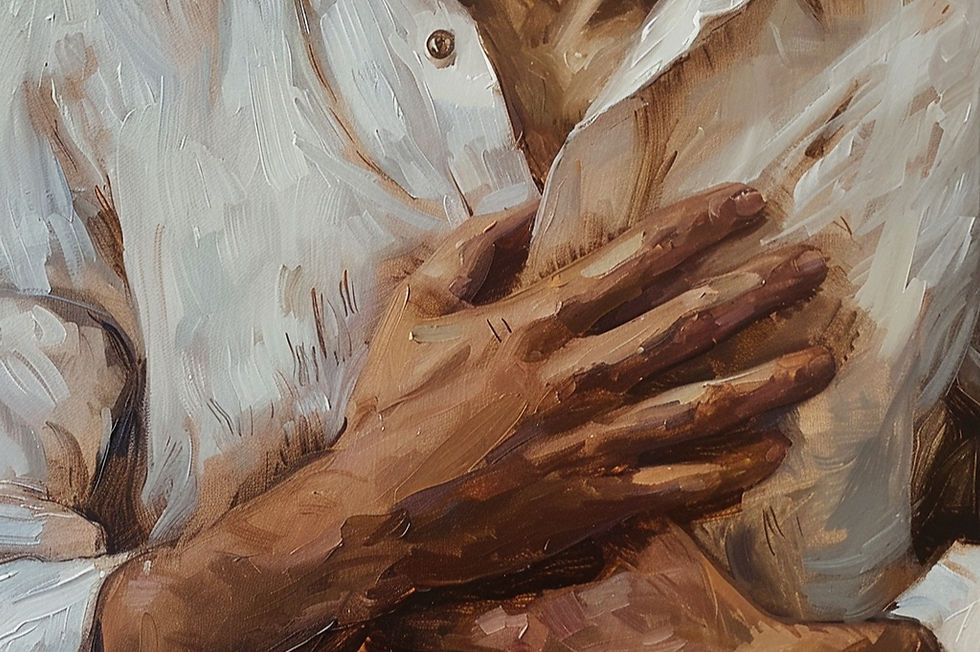Self-Connection Before Soul Connection: The Key to Strong Relationships
- Marinna Ri Siri
- Jan 30
- 4 min read

When we think about improving our relationships—whether with partners, family, friends, or colleagues—many of us tend to focus on the other person. We try to change behaviors, alter communication styles, or adjust expectations. While these are all wishful and sometimes beneficial strategies, there's one crucial piece of the puzzle we often overlook: the relationship we have with ourselves.
The truth is, the most important relationship we’ll ever have is the one we nurture within. Our inner world shapes our outer world, and this is especially true when it comes to the connections we have with others. The way we view ourselves, treat ourselves, and manage our own emotions directly impacts how we interact with the world around us.
Why Focusing on You First Matters
If we want to transform our external relationships for the better, we must start by focusing on the relationship we have with ourselves. Here's why:
All Relationships Are Mirrors
Every relationship we have is, in some way, a reflection of the relationship we have with ourselves. Think about it: If you struggle with self-worth or have unresolved inner conflicts, it’s likely that these issues will spill over into your interactions with others. Similarly, if you love and accept yourself, that energy tends to attract more positive, nurturing relationships.
When we focus on improving how we see and treat ourselves, we naturally begin to change the dynamic of our external relationships. Instead of reacting from a place of insecurity or fear, we respond from a place of strength, love, and clarity.
Internal Change Reflects Externally
This concept is simple yet powerful: When we change our inner dialogue and work on personal growth, those changes become visible in our daily interactions. We stop needing external validation and begin to offer more kindness, patience, and understanding to others because we’re already offering it to ourselves.
For example, if we’ve been working on self-compassion, we’re more likely to approach our partner’s mistakes with empathy rather than frustration. We understand that we, too, make mistakes and deserve grace. This shift doesn’t just improve the relationship with the other person, it enhances the relationship with ourselves.
Prevention of Drama and Blame
One of the most important benefits of focusing on the relationship with ourselves first is that it prevents many problems from ever starting. When we’re secure in who we are and how we feel, we don’t react impulsively to things that trigger us. Instead of blaming others or creating unnecessary drama, we recognize that the source of many conflicts lies within us.
For instance, if we feel insecure about something, that feeling is ours to address—not the other person’s responsibility. When we take ownership of our emotions and reactions, we take away the power that blame and drama hold over us. This prevents conflict from escalating and opens up space for more meaningful, authentic communication.
How to Focus on Your Relationship with Yourself
Practice Self-Awareness Take time to check in with yourself regularly. What are you feeling? Practice observing and witnessing your emotions rather than avoiding them or losing yourself in them. This is one of the most powerful forms of self-love we can be; staying with ourselves through the intensity of our emotional charges.
Question Your Beliefs What thoughts are running through your mind? Become aware of the stories you tell yourself that are likely not true. Becoming more self-aware allows you to understand your emotional triggers and the stories that lie underneath them and to work through them before they spill over into your relationships with others.
Cultivate Self-Compassion It’s easy to be hard on ourselves when we make mistakes or face challenges. But practicing self-compassion—treating yourself with the same kindness and understanding you’d offer a friend—helps you build a solid foundation of self-love. The more you nurture yourself, the more you’ll naturally extend that kindness to others.
Set Boundaries Learning to say no and prioritize your needs is an essential part of self-care. When you establish healthy boundaries, you protect your emotional well-being and create more balanced relationships with others. Boundaries are not walls—they’re guidelines for how you allow yourself to be and show up with others.
Engage in Personal Growth Commit to your own development. Whether it’s through reading, therapy, mindfulness practices, or pursuing new passions, investing in your personal growth not only helps you evolve but also strengthens your inner sense of peace and confidence.
The Ripple Effect
By focusing on the relationship you have with yourself first, you're not only improving your own life—you’re also contributing to better relationships with those around you. When you become the best version of yourself, you show up more fully in your relationships, giving others the permission to do the same.
Also, every shift you make within yourself creates a ripple within the collective field of consciousness inviting change in a deep energetic way.
Ultimately, the stronger the relationship you have with yourself, the stronger and more fulfilling your external relationships will be as you will invite and call forth greater experiences into your life.
The Class We Suggest you start with is "The Emotion Master Training" as we have found that at the very root of a healthy vibrant relationship with yourself is to develop Emotional Resilience. If you know how to be fully present with your emotions, you will be able to be fully present with another without blame or judgement.
.png)
Komentarze